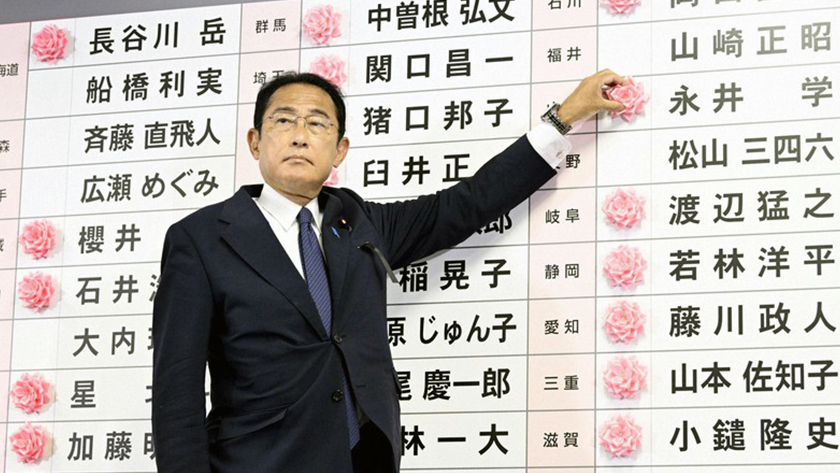Iran Press/ Asia: Prime Minister Fumio Kishida's Liberal Democratic Party (LDP) grabbed 63 seats, or more than half of the 125 seats up for grabs, buoyed by strong voter support in a show of public confidence in his nine-month-old administration despite the country struggling with rising prices and security threats posed by Russia's war in Ukraine.
In all, the LDP and its coalition partner Komeito secured a total of 76 seats, comfortably retaining a majority in the 248-member upper chamber of parliament.
The pro-constitutional amendment camp, comprising the LDP-Komeito coalition, two opposition parties and independents, secured 179 seats in the upper chamber. Combined with the 84 seats it holds that were not up for election this year, it crossed the 166-seat threshold needed to aim for a first-ever revision of the 1947 Constitution.
However, while the LDP had its best outcome since 2013, the major opposition party, the Constitutional Democratic Party of Japan, won just 17 seats, losing six of the contested seats it had held before the election.
The opposition Japan Innovation Party, which advocates constitutional reform, won 12 seats, adding six to its total in the chamber.
Related News:
Polls open in Japan election upended by Abe's death
At the LDP headquarters in Tokyo on Sunday, Kishida and senior party executives offered silent prayers for Abe, Japan's longest-serving premier who died Friday after being shot by a man when giving a speech in Nara, western Japan.
Related News:
Former Japanese prime minister shot at campaign event
"The election, which is the foundation of democracy, was challenged by violence and it carries a big meaning that the election was carried through. I will continue to work hard to protect democracy," Kishida said, in reference to the shooting of Abe.
Kishida also vowed to push ahead with plans for amending the Constitution, saying, "We will deepen parliamentary debate over the Constitution further so a concrete amendment proposal can be compiled."
The LDP's constitutional reform proposals include amending the war-renouncing Article 9, a sensitive issue for South Korea and China, both of which suffered from Japan's wartime militarism.
The ruling party aims to end the debate over the constitutionality of the Self-Defense Forces by explicitly mentioning them in the supreme law.
Kishida took office last October pledging all-out efforts to cope with the COVID-19 pandemic.

The fresh mandate will also enable him to proceed with his drive to create a "new capitalism" designed to redistribute wealth, with no national election expected until 2025 unless Kishida dissolves the House of Representatives, the more powerful lower chamber.
The prime minister is expected to reshuffle his Cabinet and ruling party executives by September, according to LDP sources.
The killing of Abe, a lower house member and a key LDP figure, rocked the nation and the world, unifying major parties in their resolve not to yield to political violence.
The shockwaves are expected to reverberate in Japan's political world, with the LDP losing one of the staunchest supporters of constitutional reform and an advocate of more defense and fiscal spending to raise the country's global standing.
The behavior of swing voters had been another focus of the election. Voter turnout was 52.05 percent, higher than 48.8 percent in the previous upper house election 2019.
Elections are held for half of the upper house seats every three years. A total of 545 candidates vied for the 125 seats -- 74 in electoral districts and 50 chosen by proportional representation, plus one vacancy among the seats in the other half of the chamber. The total included a record 181 female candidates.
The LDP pledged to strengthen Japan's defense capabilities with an eye on boosting its defense budget to 2 percent or more of gross domestic product.
224
Read More:
Former Japanese PM dies after shooting incident
Body of assassinated Shinzo Abe arrives back in Tokyo
Maryam Abolbagha

